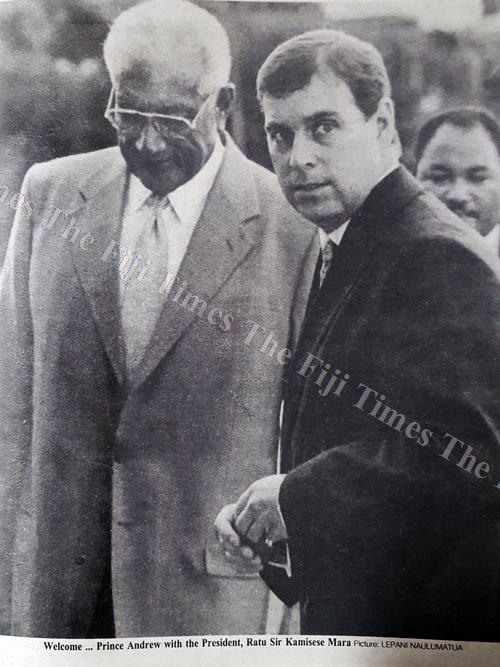The Fiji Times published a story about the arrest of a Fijian soldier serving with the British Army’s elite Special Air Service Regiment in Northern Ireland in its May 31, 1976, edition.
The Fijian soldier was arrested and charged with firearms offences in a Dublin Court after his patrol strayed over the border into Eire.
In its May 31, 1983, edition The Fiji Times also published a story about Fiji’s Exclusive Economic Zone (EEZ) where Fiji’s prime minister at the time, the late Ratu Sir Kamisese Mara, said Fiji would welcome overseas companies taking part in the exploitation and exploration of marine resources in the new EEZ.
Today as we look back over the years into the pages of history, we recap on some of the issues that made the news and were covered by The Fiji Times.
Below are excerpts of some of the stories published in The Fiji Times editions of May 31, 1976, and May 31, 1983.
Monday May 31, 1976
Soldier from Fiji seized by Irish
A Fijian soldier serving with the British Army’s elite Special Air Service Regiment in Northern Ireland was arrested and charged with firearms offences in a Dublin Court after his patrol strayed over the border into Eire.
The SAS is the British Army’s toughest unit, recruited from within the army, and with a rejection rate of 90 per cent.
Its troops are highly trained in unarmed combat, demolition, night patrolling and call their officers by their first names.
Tuesday, May 31, 1983
PM invites firms to sea resources
Fiji would welcome overseas companies taking part in the exploitation and exploration of marine resources in the new Exclusive Economic Zone (EEZ), the Prime Minister, Ratu Sir Kamisese Mara said.
He said the seas offered the “only real alternative” for the economic wellbeing of many people in the Pacific.
“Already, in Fiji’s case marine resources have become an important component of our export earnings and possibilities for further expansion are being actively explored.”
Parliament considers Companies Bill
Widespread criticism, among other things led to the shelving of a draft of the Companies Bill which was drawn up in 1979.
Attorney-General Mr Manikam Pillai told the House of Representatives that critics had reservations on the draft which had “demanding and sophisticated requirements” that would have been counter-productive and many “family run” businesses would have been forced to close because they would not have been able to afford the professional assistance necessary to comply with the law.



